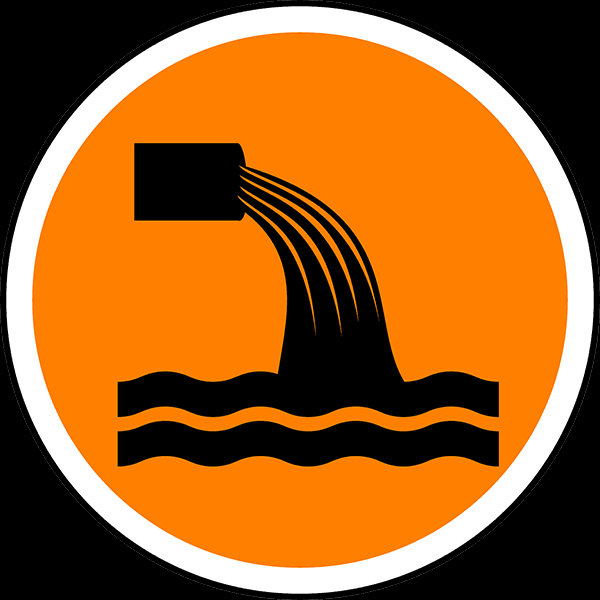Some Known Incorrect Statements About Reclaim Waste
Some Known Incorrect Statements About Reclaim Waste
Blog Article
Reclaim Waste - Questions
Table of ContentsUnknown Facts About Reclaim WasteThe Only Guide to Reclaim WasteNot known Incorrect Statements About Reclaim Waste The 10-Second Trick For Reclaim WasteReclaim Waste for Beginners
Domestic sewage waste refers to the waste and products from a domestic septic tank. The appropriate administration and disposal of domestic sewage waste call for fluid waste to be transferred to a sewage therapy plant where the correct approaches and equipment are applied to detoxify and dispose of waste.
Industrial waste typically includes potential risks, such as combustible products or a combination of fluid and strong waste items, and needs a much more sophisticated and comprehensive disposal process. The disposal of business waste commonly involves the filtering of waste prior to transport to make sure secure and correct disposal. Hazardous waste is developed from byproducts and runoff of commercial processes and production.
This type of waste can not utilize the very same sewage management transport or procedures as septic or industrial liquids. The commercial waste management procedure needs the examination and testing of fluid waste prior to it undertakes the disposal process (liquid waste disposal melbourne). Overflow waste is the fluid waste that comes from overflow and excess stormwater in highly inhabited areas or cities
Overflow waste can cause contamination and flooding otherwise handled effectively. Discover a lot more about sewer cleaning and waste monitoring. Making sure proper waste monitoring can stop disasters and lower environmental damage. Both people in property settings and experts in commercial or manufacturing industries can take advantage of understanding the procedures and policies of fluid waste monitoring.
All about Reclaim Waste
Contact PROS Providers today to discover our waste monitoring and disposal solutions and the proper ways to care for the fluid waste you generate.
(https://soundcloud.com/reclaimwaste1)Do you know what takes place to your water when you disengage, purge the toilet or drain pipes the washing machine? No? Well, it's worth knowing. This so-called 'wastewater' is not just an essential source yet, after treatment, will be launched to our land, rivers or the ocean. Utilized water from bathrooms, showers, bathrooms, cooking area sinks, laundries and commercial processes is called wastewater.

water utilized to cool equipment or clean plant and devices). Stormwater, a kind of wastewater, is drainage view it that moves from agricultural and urban areas such as roofs, parks, gardens, roads, courses and gutters into stormwater drains, after rainfall. Stormwater streams unattended straight to neighborhood creeks or rivers, eventually reaching the sea.
An Unbiased View of Reclaim Waste
In Queensland, the majority of wastewater is treated at sewer therapy plants. Wastewater is transferred from domestic or industrial sites with a system of drains and pump terminals, known as sewage reticulation, to a sewer treatment plant. City governments develop, preserve and run most sewage treatment plants. Operators are licensed under the Environmental Security Act 1994 to release treated wastewater at an appropriate ecological standard into rivers.
The Division of Natural Resources encourages city governments regarding managing, operating and keeping sewage systems and therapy plants. In unsewered locations, city governments might call for homeowners to mount specific or family sewage treatment systems to deal with residential wastewater from toilets, kitchen areas, shower rooms and washings. The Department of Natural Resources authorises using house systems when they are proven to be efficient.
In some new communities, treatment of some stormwater to remove trash, sand and gravel has started using gross pollutant traps. Wastewater therapy happens in four stages: Eliminates strong matter.
Utilizes small living organisms recognizes as micro-organisms to break down and remove remaining liquified wastes and fine fragments. Micro-organisms and wastes are incorporated in the sludge.
An Unbiased View of Reclaim Waste
Nutrient removal is not available in any way sewer therapy plants because it requires costly specialized devices. It is becoming extra common in Queensland. Clear fluid effluent produced after treatment may still contain disease-causing micro-organisms. If this effluent is launched into rivers such as rivers or the sea, the micro-organisms will eventually pass away out.

This typically implies wastewater needs to be dealt with or impurities eliminated before it can be discharged to rivers. A lot of wastewater flows into the sewage system. Under the Act, city governments carry out approvals and licences for eco appropriate activities (Ages) involving wastewater launches that might have a regional impact. The division administers authorizations and licences to Periods including wastewater releases that may have a regional or statewide influence.
Reclaim Waste Things To Know Before You Get This
Otherwise, examples are taken for research laboratory evaluation. Typically lots of tests are required to develop the levels of each of the various toxins such as oils, heavy steels and chemicals in water. Surveillance gives accurate information regarding water high quality and can verify that licence conditions are being satisfied. The information obtained with surveillance supplies the basis for making water top quality choices.
Report this page